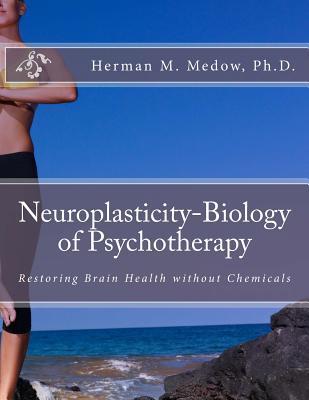a trip through the history of searching for how to improve mental health and treat illness- treatment involves a division of labor- psychologists, social workers and counselors, provide "talking therapies" to help clients solve problems. "Biological Psychiatry" treats the problems of brain biology, usually with medications. Neuroplasticity is disrupting this arrangement along with decades of accepted wisdom about brain biology. Neuroplasticity is a process where the brain makes changes in its own internal biology. This happens with any learning experience. So called "talking therapies" always involve learning. They are more accurately described as "learning therapies" - with what we know about how learning affects the brain, these treatments also result in changes of brain biology. A study in the UCLA Psychiatry department demonstrated that designing learning experiences and applying principles of neuroplasticity corrected biological malfunctions in the brain, that are implicated in obsessive-compulsive disorder. with zero side effects. Studies of medicines focus on how these meds reduce symptoms of pathology in behavior and thinking. They are offered as biological therapies- yet, after more than six decades of research and clinical practice, it's tough to find evidence for an agent that actually fixes a biological brain glitch. The UCLA team also discussed what neuroscience teaches us about consciousness and how it affects the material biology of the brain- awareness is a very different part of reality from electrical and metabolic activity. Consciousness gives us the power to choose-free will. Self-directed neuro- plasticity happens when we choose to engage in a learning experience. What is going on in the firing of brain neurons and metabolic activity does affect how we feel, what we think and how we act. We also know that where we choose to direct our attention, and how we choose to act, affects the physical activity of the brain.












